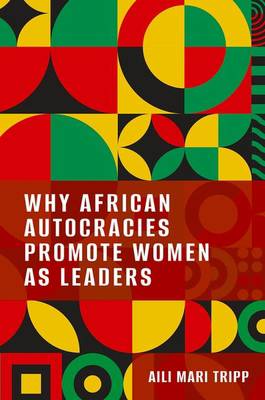
- Afhalen na 1 uur in een winkel met voorraad
- Gratis thuislevering in België vanaf € 30
- Ruim aanbod met 7 miljoen producten
- Afhalen na 1 uur in een winkel met voorraad
- Gratis thuislevering in België vanaf € 30
- Ruim aanbod met 7 miljoen producten
Zoeken
€ 48,45
+ 96 punten
Uitvoering
Omschrijving
Why African Autocracies Promote Women as Leaders contrasts authoritarian countries with democracies in Africa to explain how and why autocracies promote women as leaders. The face of African politics has changed significantly since the mid-1990s as more women have entered politics in both democracies and autocracies. Women's movements and organizations have successfully lobbied for and won more leadership roles for women in the executive, legislature, and sub-national bodies. At the same time, in authoritarian countries this has created a conundrum: these successes in attaining leadership roles for women potentially end up strengthening the very regime that violates human and women's rights. These regimes instrumentalize women leaders and women's rights to enhance the longevity of an autocratic ruling party by increasing vote share, enhancing internal and external legitimacy, and softening their image after civil war, jihadist activity, or military rule. This occurred in the context of the shift from one-party to multiparty states, the end of major conflicts, and changing international gender norms in the 1990s. The study draws on cross-national research in Africa and over 188 in-depth interviews in Uganda, Rwanda, Zimbabwe, Mauritania, Morocco, and in two democracies, Namibia and Botswana.
Specificaties
Betrokkenen
- Auteur(s):
- Uitgeverij:
Inhoud
- Aantal bladzijden:
- 336
- Taal:
- Engels
Eigenschappen
- Productcode (EAN):
- 9780197828977
- Verschijningsdatum:
- 15/12/2025
- Uitvoering:
- Paperback
- Formaat:
- Trade paperback (VS)
- Afmetingen:
- 159 mm x 234 mm
- Gewicht:
- 412 g

Alleen bij Standaard Boekhandel
+ 96 punten op je klantenkaart van Standaard Boekhandel
Beoordelingen
We publiceren alleen reviews die voldoen aan de voorwaarden voor reviews. Bekijk onze voorwaarden voor reviews.








